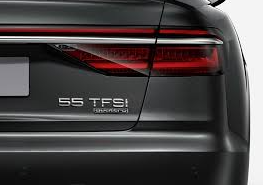
Transport Minister demands exemption for synthetic fuels in the 2035 proposal.
Germany’s transport minister has announced that the country will not support the European Union’s planned ban on the sale of new combustion-engine cars starting in 2035. This decision follows the lack of assurance from the EU’s executive regarding an exemption for synthetic fuels.
Last year, EU lawmakers and member states reached a preliminary agreement requiring car manufacturers to cut emissions from new vehicles by 55% by 2030, relative to 2021 levels, and to achieve 100% reduction by 2035. This plan, part of the EU’s broader strategy to lower greenhouse gas emissions, effectively prohibits the sale of new cars powered by hydrocarbon fuels such as petrol.
Germany, among other nations, had requested the EU Commission to consider an exemption for vehicles using e-fuels, which can be produced using renewable energy and carbon captured from the atmosphere. These fuels are argued to be more environmentally friendly since they would not contribute additional climate-warming emissions.
Transport Minister Volker Wissing stated that without a proposal from the Commission, Germany would not support the ban. He emphasised the urgent need for large-scale production of synthetic fuels to cater to the demand for cars sold before 2035, as well as for heavy goods vehicles, ships, and planes. “The EU Commission should propose regulations that allow for the registration of combustion engines post-2035 if they can be verifiably powered by synthetic fuels,” he remarked to reporters in Berlin.
This issue has created a rift within Germany’s government, pitting Wissing’s libertarian Free Democratic Party against the environmentalist Green Party, which supports a total ban on combustion engines. The main opposition party, the center-right Union bloc, has also opposed the EU-wide ban, cautioning that it could damage Germany’s renowned automotive industry.
Critics argue that battery-electric technology is better suited for passenger vehicles, with synthetic fuels being more appropriate for sectors where alternatives are limited, such as aviation. Benjamin Stephan from Greenpeace pointed out that studies indicate the same amount of electricity can drive a battery-powered vehicle five times further than one using e-fuels. “This inefficient and costly fuel will not be viable for cars, especially not for new models by 2035,” he stated, suggesting that it would be more advantageous for the German automotive sector to invest in electric vehicle technology.









